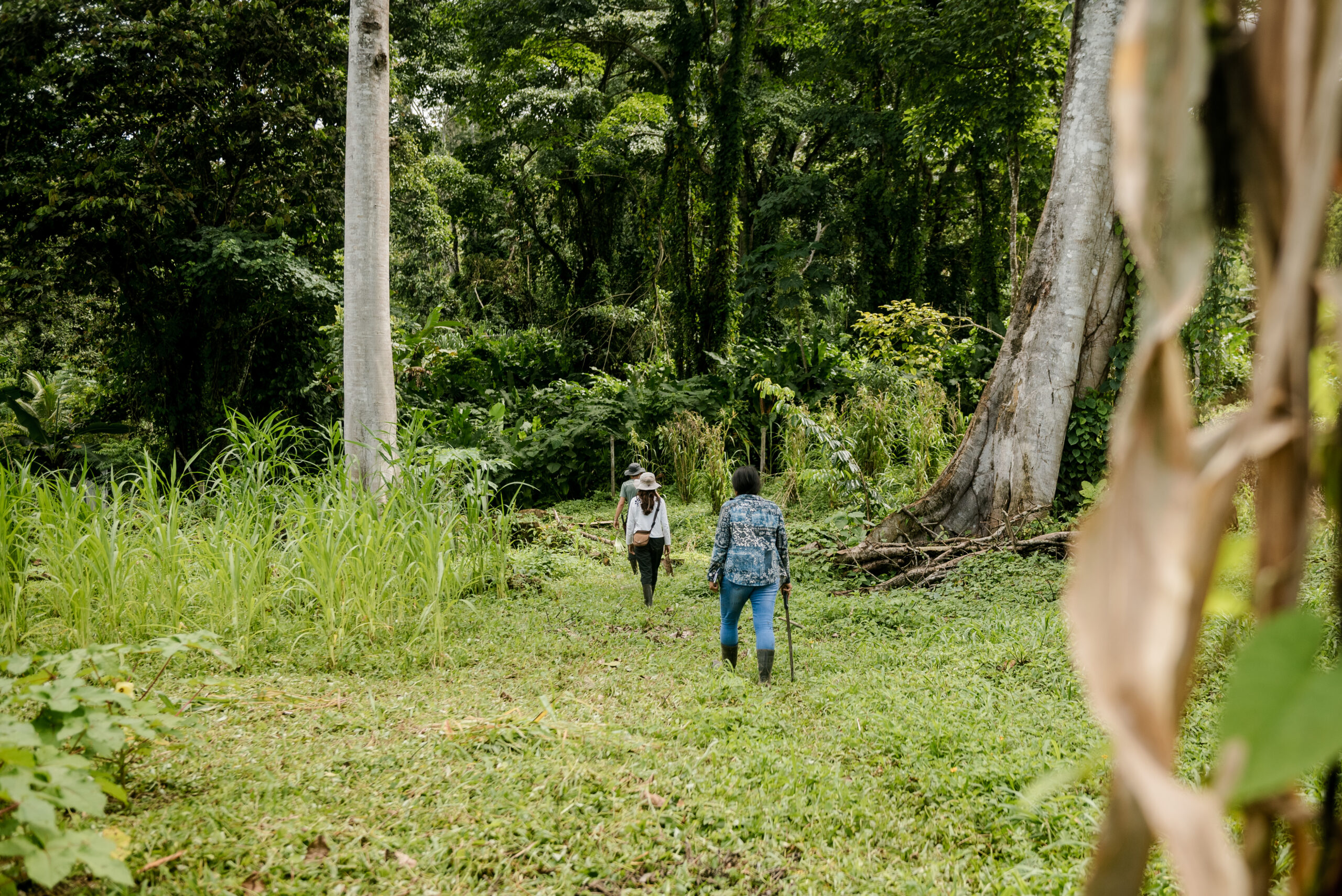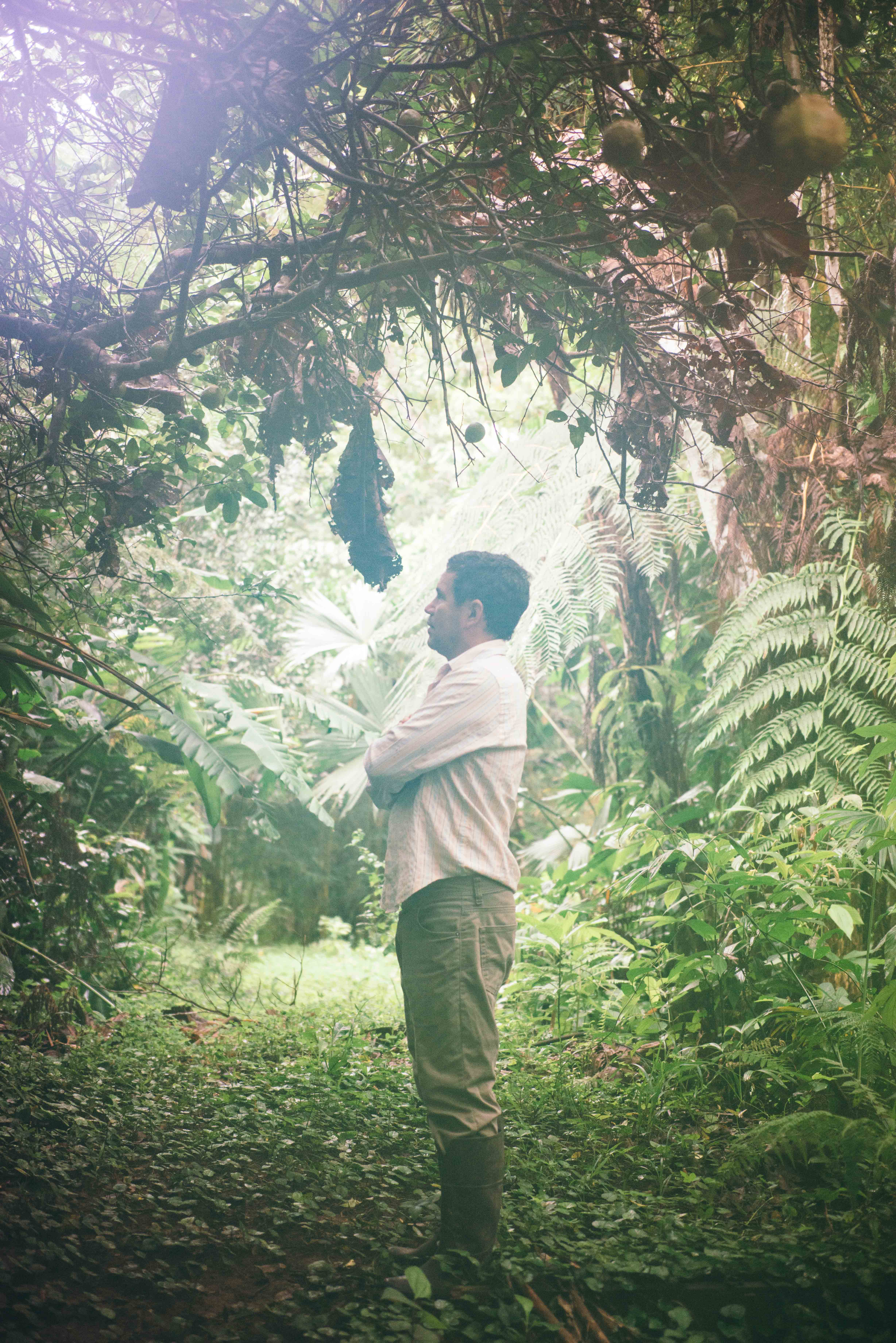Connecting to
the web of
life


Our lives are an integral part of the ecosystem, and we all depend on healthy ecosystems to live healthy lives. At the same time, studies show that only 3% of the world's land remains ecologically intact. These small islands of wilderness, undisturbed by extractive activities, are found primarily in forest ecosystems, such as parts of the Amazon and Congo tropical rainforests, or the eastern Siberian and northern Canadian forests, but also the Sahara. These diverse ecosystems are themselves part of a larger, interconnected system of the living Earth.
The dust from the Sahara, for instance, which travels across the Atlantic Ocean and is made up of dead microorganisms, is loaded with nutrients that are essential for plant growth in the Amazon. Astonishingly, the amount of phosphorus that reaches Amazonian soils from Saharan dust, estimated at 22.000 tons per year, is about the same amount that is lost through rainfall and flooding.
Another example of ecological connectivity and equilibrium relates to the relationship between the Andes and the Amazon, which, much like the functioning of human organs, cannot be separated. When ecosystems maintain high connectivity, animal species can feed, reproduce and migrate freely, as well as cycle nutrients, pollinate plants and disperse plant seeds.
Cultures and people are woven into this process of reciprocity. Eco-cultural corridors are essential to ensure the interdependent health of these ecosystems. Indigenous peoples, who are deeply connected to the land, protect 80% of the world's biodiversity, although they represent less than 5% of the world's population. They are the best guardians of the land and rainforests, which can also be seen as giant gardens that co-emerged through human and non-human interaction.
Love for Life works in a strong network of Indigenous and local partners to protect and regenerate the forests, biodiversity and cultures of the Amazon and the great Mesoamerican rainforests of La Amistad and Darien.
Impact
In-Depth
The rainforests provide food and medicine for all of us. Around 80% of the natural foods that we eat originated in in the rainforest, including rice, tomatoes, potatoes, bananas, black pepper, pineapples, corn, coffee, and chocolate. More than 25% of medicines used worldwide originated in rainforests.
From soil to soul, the health of ecosystems is mirrored in our bodies. Rainforest ecosystems are a window into the web of life and, once understood, the intelligence of Nature offers a comprehensive approach for resilience, regeneration and healing.
Around 1.6 billion people – almost 25% of the world’s population and of which 60 million are Indigenous peoples – directly depend on the rainforest for their livelihoods. Generating regenerative, forest-based livelihoods that incentivize conservation is a proven approach to protecting the world’s forests.
Women and men depend on forests in different ways. Often their knowledge of the forests and the way they benefit from forests or are affected by forest degradation differs. Strengthening women in their forest stewardship means keeping forest thriving, ensuring food and seed sovereignty for their families, communities and future generations.
The protection and regeneration of ecosystems is closely linked to the strengthening of community-led education and cultural values. Building and strengthening local capacity involves combining traditional and innovative regenerative practices and revitalizing ancient knowledge through participatory processes of dialogue and intergenerational learning.
Rainforests regulate global temperatures, cool the planet, create local micro-climates and limit the Earth’s reflectivity, thereby stabilizing ocean currents, wind and rainfall patterns. While they cover less than 3% of the Earth’s surface, they are home to over half of the world’s terrestrial plant and animal species.
Two-thirds of the carbon stored in the world’s trees can be found in tropical rainforest. Through transpiration they provide clean water to the Earth, sustain rivers and it is estimated that about 15% of the world’s freshwater flows from the Amazon Basin alone.
Healthy rainforests depend on self-determined Indigenous peoples and healthy communities. Through recognizing and respecting their rights, traditional knowledge and cultures in harmony with Nature, Indigenous peoples can continue their vital stewardship of these precious ecosystems.

Explore our
Ecosystem Protection &
Restoration Program

